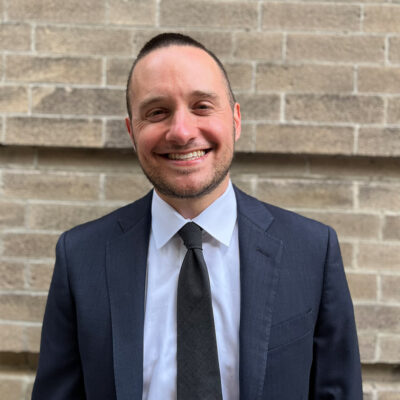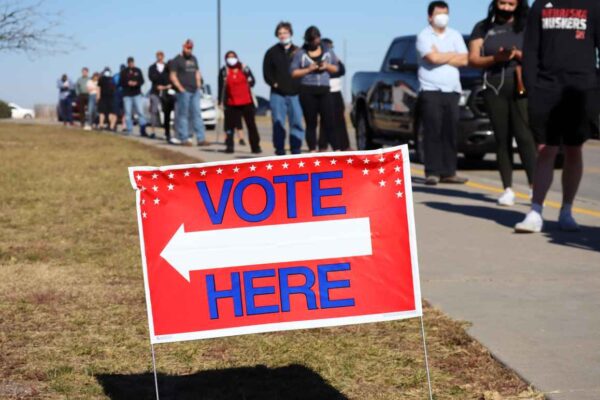Thousands of Nebraskans’ Voting Rights at Stake in New Lawsuit
LINCOLN, Neb. — Nebraskans who are at risk of being denied a vote this year are suing Nebraska’s top elections official and the Douglas and Hall County Election Commissioners in hopes of ensuring they will have a voice at the polls this November. The outcome of their lawsuit will likely impact thousands of Nebraskans’ voting rights.
The American Civil Liberties Union, ACLU of Nebraska, and national law firm Faegre Drinker brought the challenge on behalf of three individual plaintiffs and Civic Nebraska, a nonpartisan, nonprofit group.
The legal team filed the lawsuit directly with the Nebraska Supreme Court this morning, seeking court orders compelling certain actions from Nebraska Secretary of State Robert Evnen, including issuing voter registration applications in accordance with voter restoration statutes and addressing the wrongful disqualification of voters with past felony convictions.
The case also seeks court orders compelling local election commissioners to allow Nebraskans with past felony convictions to register to vote if they have completed all terms of their sentence and are otherwise eligible to vote, as is required under state law. Today’s filings include a request for justices to approve bypassing litigation at the district court level given the nature and urgency of the case.
The lawsuit is in response to Evnen in defiance of a law that passed the Nebraska Legislature requiring the restoration of voting rights to all Nebraska citizens who have completed the terms of their felony sentence.
Evnen has said he is simply following that asserts only the Nebraska Board of Pardons has the power to restore Nebraskans’ voting rights after a felony conviction, a three-member board that includes Hilgers, Evnen, and Nebraska Gov. Jim Pillen. This opinion is non-binding and cannot overturn a law passed by the Nebraska Legislature.
Evnen’s directive effectively orders county election officials to disregard state law. Since 2005, Nebraskans with past felony convictions have been legally able to vote two years after completing all terms of a felony sentence, including probation and parole.
This year, a bipartisan majority of Nebraska state senators removed the two-year wait. Nebraska’s Voting Rights Restoration Coalition estimates at least 7,000 Nebraskans should be newly eligible to vote this year thanks to the change.
The Nebraskans bringing this action include T.J. King, an Omahan who wishes to register as a Democrat; Gregory Spung, an Omahan who hopes to register as a nonpartisan voter; and Jeremy Jonak of Wood River, who wants to register as a Republican. All three want to vote in this November’s election. Organizational plaintiff Civic Nebraska hopes to conduct planned registration efforts for newly eligible voters, but cannot do so because of Evnen’s order.
The following comments are from plaintiffs and counsel in this lawsuit:
Plaintiff T.J. King said:
“We have paid our debt in full, and we should be fully included in our democracy. Being a productive member of society comes with many responsibilities, including jobs, bills and taxes. Those are essential, and so is having a say in who represents us and how tax dollars are spent.”
Plaintiff Gregory Spung said:
“To me, this is about being fully part of society now that I have made up for a past mistake. There is an important election ahead of us, and I was excited that I could be part of it. All we are asking is for officials to follow the law and let us vote.”
Plaintiff Jeremy Jonak said:
“Once someone has done their time, they deserve a second chance. I firmly believe that. I hope I can help make a difference — not just for my sake — but everyone else who has earned their second chance and has a right to vote.”
Steve Smith, director of communications for Civic Nebraska, said:
“Civic Nebraska built a robust voter registration initiative to help thousands of affected Nebraskans register under the new law. We were forced to halt that work less than two days before the law was to take effect because of the unilateral action of our state’s executive branch. We have turned to the Nebraska Supreme Court to instruct the executive branch to do what it will not do: follow the law.”
Jane Seu, legal and policy counsel at the ACLU of Nebraska, said:
“It is hard to overstate how much is at stake. Unless the courts step in, our state’s top elections official will stop our clients and thousands of other Nebraskans from having a say in this November’s election. These are Nebraskans who have done their time, who by state law have a right to vote, and who are working, paying taxes and contributing to our communities. We are confident in the constitutionality of the laws that these officials want to ignore, and we are ready to make our case to make sure that every eligible voter can participate in our democracy.”
Jonathan Topaz, staff attorney with the ACLU’s Voting Rights Project, said:
“The Nebraska Constitution is clear: Only courts can overturn a law as unconstitutional. Yet the secretary of state’s directive attempts to do just that, undermining the will of the voters and lawlessly reinstating permanent felony disenfranchisement by executive fiat. It would overturn a law passed by the democratically elected legislature, re-disenfranchise thousands of Nebraska citizens, and upend two decades of rights restoration law less than four months out from a presidential election. It cannot stand.”
The ACLU of Nebraska and Civic Nebraska helped advocate for passage of the voter restoration law as members of Nebraska’s Voting Rights Restoration Coalition. Polling commissioned by the ACLU of Nebraska .
The complaint can be found here: /documents/complaint-state-ex-rel-king-v-evnen





